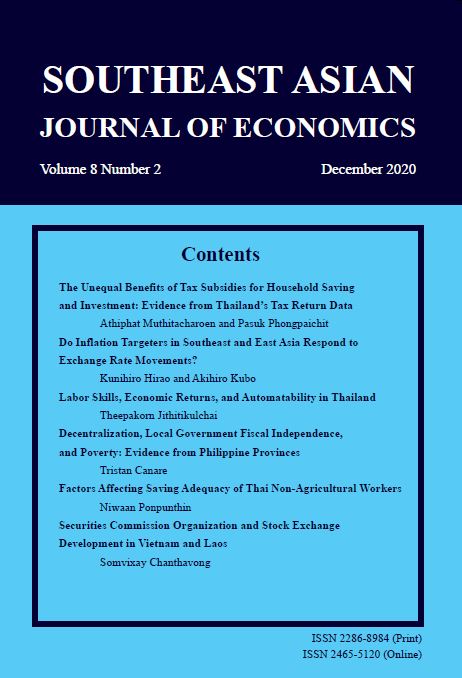Factors Affecting Saving Adequacy of Thai Non-Agricultural Workers
Keywords:
savings, saving adequacy, non-agricultural workers, Thai workers, personal financeAbstract
This research examines savings adequacy of Thai non-agricultural workers using the Panel Socio-Economic Surveys from the National Statistical Office. The savings adequacy threshold is derived from a Krungthai Macro Research report. Theoretical frameworks used in this research are Permanent Income Hypothesis, Life Cycle Hypothesis, and Theory of Mental Accounting. The Panel Regression and Panel Logistic Regression results show that there are seven factors significantly affecting the savings adequacy of Thai non-agricultural workers. These factors are 1) real wage income, 2) real other income, 3) real monthly debt repayment, 4) college education, 5) being a household head, 6) sickness, and 7) living in urban area. The first, second, and fourth factors affect savings adequacy positively, while the remaining factors affect negatively.
Downloads
Published
How to Cite
Issue
Section
License
The submission of a manuscript implies that the paper is an original work and has not been published elsewhere. The author(s) authorize the journal to reproduce or distribute the paper in printed or other electronic forms.







